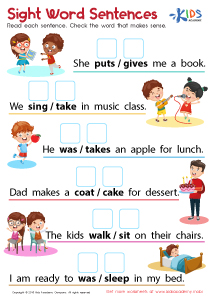Extra Challenge Reading Non-Fiction Worksheets for Ages 3-7
6 filtered results
-
From - To
Discover the perfect Extra Challenge Reading Non-Fiction Worksheets for children aged 3-7. Our curated collection, designed by education experts, engages young learners with fascinating non-fiction topics, enhancing their reading and comprehension skills. Perfect for advanced readers and those eager for a challenge, these worksheets encourage curiosity and critical thinking. Each activity is visually stimulating and age-appropriate, making reading an adventure. Ideal for both classroom and home use, our worksheets are a fantastic addition to any learning routine. Unlock your child's potential with engaging, challenging content that makes reading fun and educational. Visit Kids Academy to explore more!
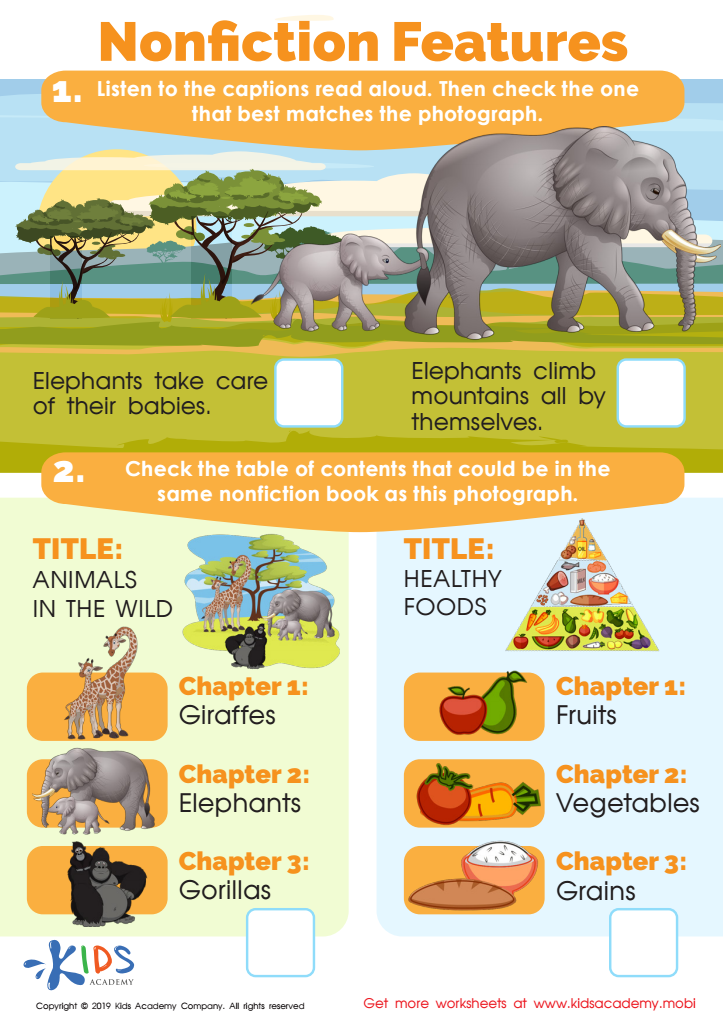

Nonfiction Features Worksheet
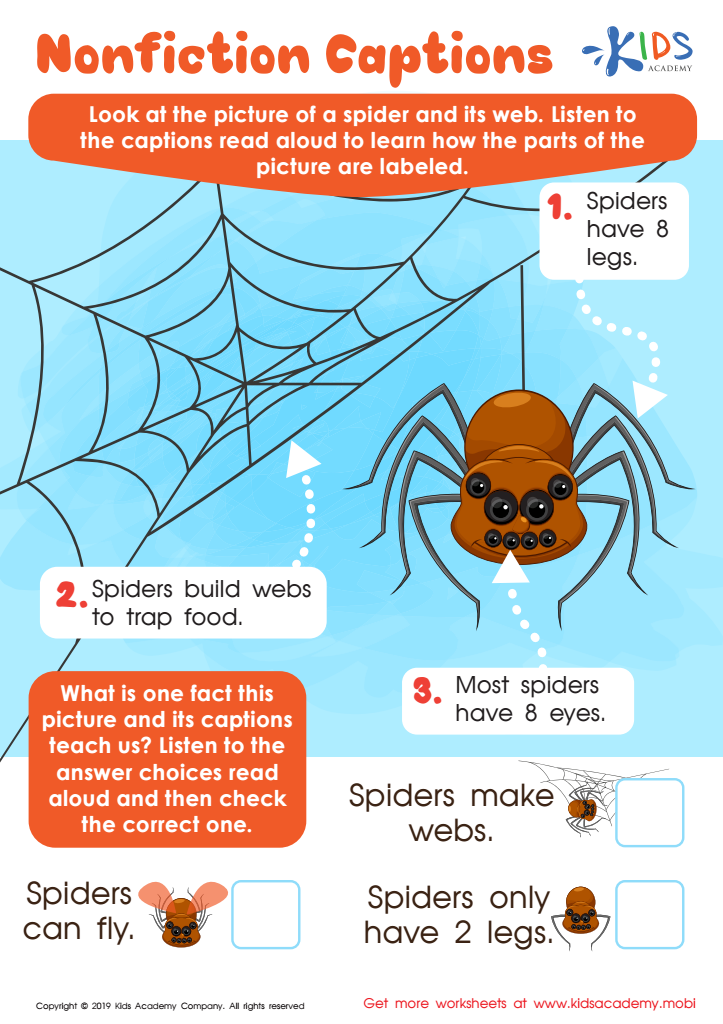

Nonfiction Captions Worksheet
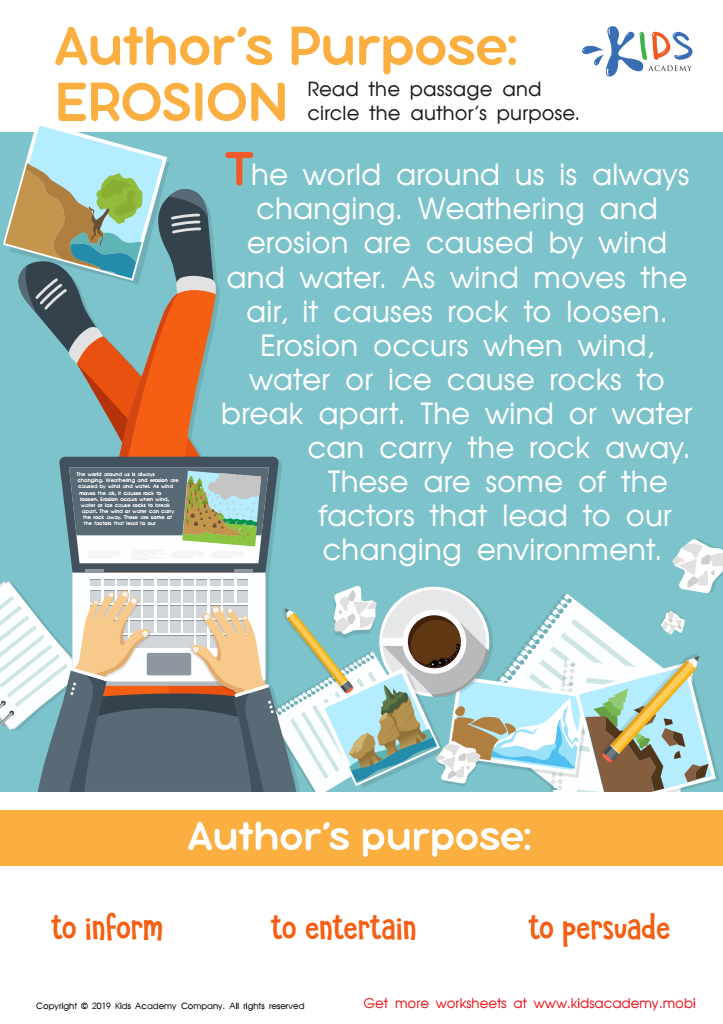

Author’s Purpose: Erosion Worksheet
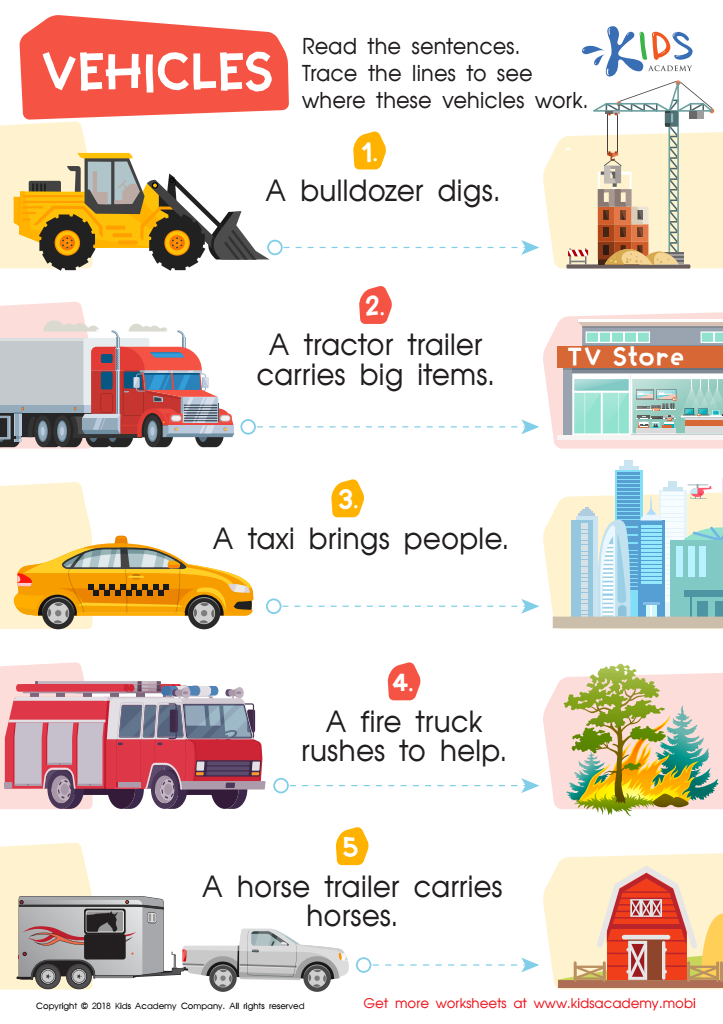

Vehicles Worksheet
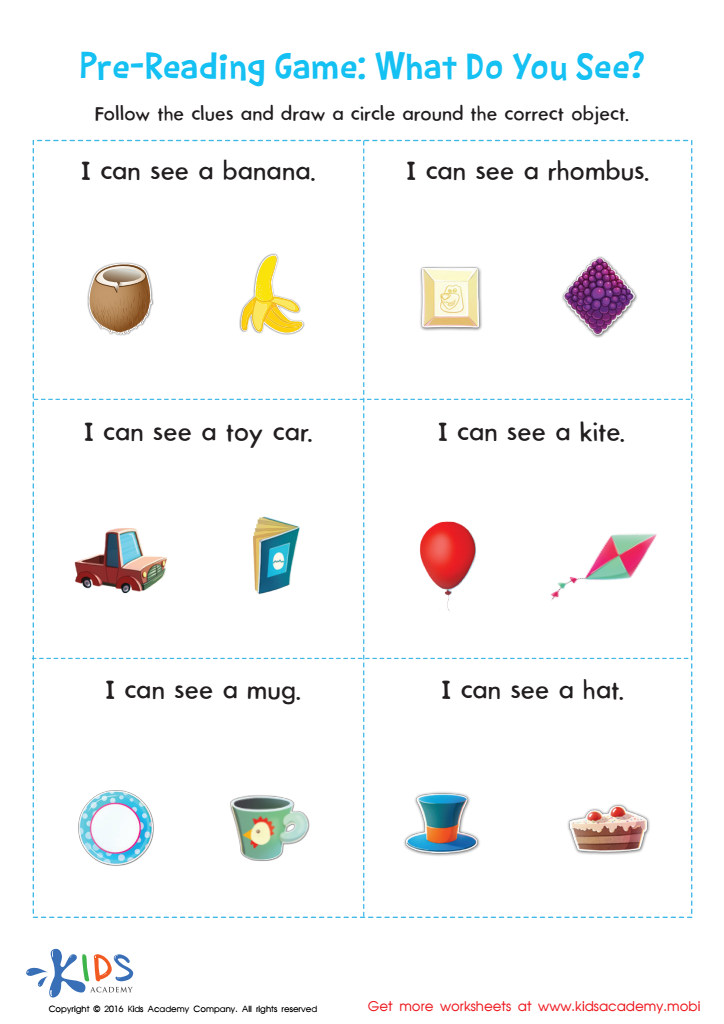

Pre–reading Worksheet: What Do You See?
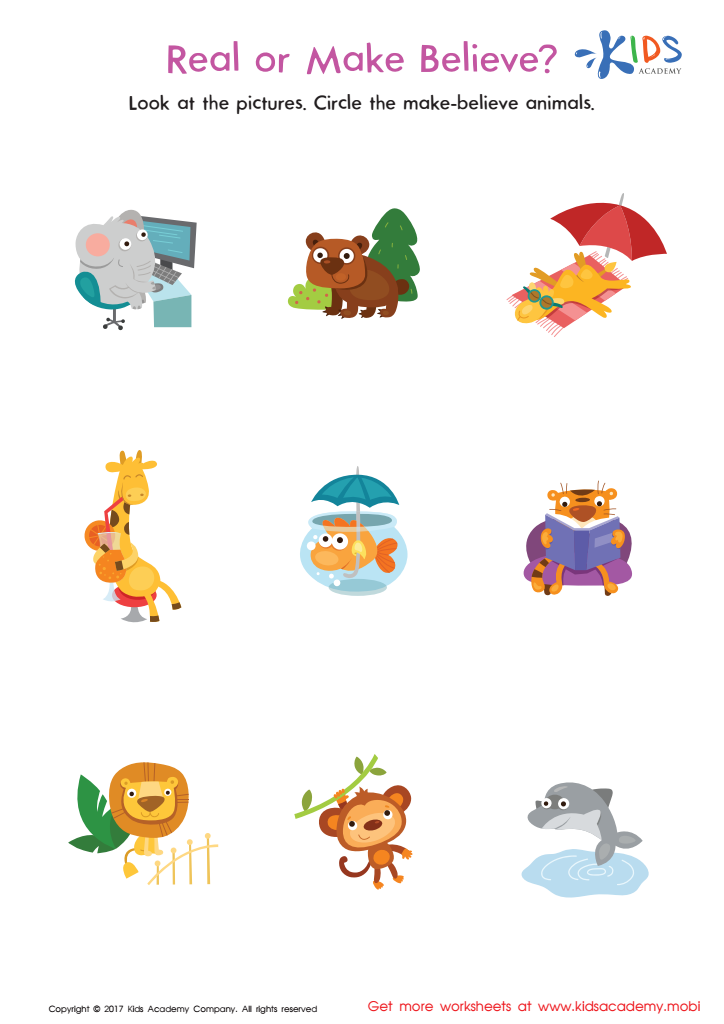

Fact or Make Believe Worksheet
Encouraging extra challenge reading of non-fiction for children aged 3-7 is crucial for several reasons. First, developing literacy skills at an early age creates a strong foundation for future academic success. Non-fiction reading exposes young minds to a wide variety of topics, such as science, history, and the natural world, sparking curiosity and broadening their understanding of how the world works. These age-appropriate texts introduce children to new vocabulary and concepts, which cultivates comprehension and critical thinking.
Parents and teachers should also recognize how non-fiction materials reflect real-world experiences, making learning more relatable and practical. This helps children make connections between the text and their everyday lives, reinforcing their learning. Furthermore, non-fiction boosts informational literacy, an essential 21st-century skill. As young readers navigate through informational text, they learn to find key details, recognize text features (like headings and captions), and gather information.
Engaging children in challenging non-fiction encourages persistence and resilience. When they tackle complex topics, it builds confidence and a sense of accomplishment. Overall, making non-fiction a part of their reading repertoire fosters a lifelong love of learning and prepares them for the more demanding reading tasks they will face in higher education and life.

 Assign to My Students
Assign to My Students











